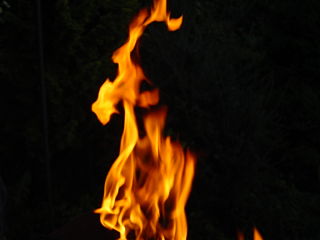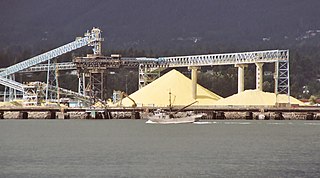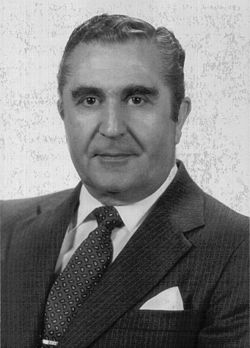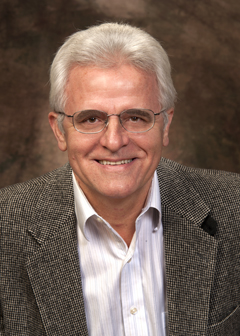
Combustion, or burning, is a high-temperature exothermic redox chemical reaction between a fuel and an oxidant, usually atmospheric oxygen, that produces oxidized, often gaseous products, in a mixture termed as smoke. Combustion does not always result in fire, because a flame is only visible when substances undergoing combustion vaporize, but when it does, a flame is a characteristic indicator of the reaction. While activation energy must be supplied to initiate combustion, the heat from a flame may provide enough energy to make the reaction self-sustaining. The study of combustion is known as combustion science.

A Carnot heat engine is a theoretical heat engine that operates on the Carnot cycle. The basic model for this engine was developed by Nicolas Léonard Sadi Carnot in 1824. The Carnot engine model was graphically expanded by Benoît Paul Émile Clapeyron in 1834 and mathematically explored by Rudolf Clausius in 1857, work that led to the fundamental thermodynamic concept of entropy. The Carnot engine is the most efficient heat engine which is theoretically possible. The efficiency depends only upon the absolute temperatures of the hot and cold heat reservoirs between which it operates.

A heat engine is a system that converts heat to usable energy, particularly mechanical energy, which can then be used to do mechanical work. While originally conceived in the context of mechanical energy, the concept of the heat engine has been applied to various other kinds of energy, particularly electrical, since at least the late 19th century. The heat engine does this by bringing a working substance from a higher state temperature to a lower state temperature. A heat source generates thermal energy that brings the working substance to the higher temperature state. The working substance generates work in the working body of the engine while transferring heat to the colder sink until it reaches a lower temperature state. During this process some of the thermal energy is converted into work by exploiting the properties of the working substance. The working substance can be any system with a non-zero heat capacity, but it usually is a gas or liquid. During this process, some heat is normally lost to the surroundings and is not converted to work. Also, some energy is unusable because of friction and drag.

Thermodynamics is the branch of physics that studies heat, work, and temperature and their relation to energy, entropy, and the physical properties of matter and radiation. The behavior of these quantities is governed by the four laws of thermodynamics, which convey a quantitative description using measurable macroscopic physical quantities, but may be explained in terms of microscopic constituents by statistical mechanics. Thermodynamics plays a role in a wide variety of topics in science and engineering.

Heat transfer is a discipline of thermal engineering that concerns the generation, use, conversion, and exchange of thermal energy (heat) between physical systems. Heat transfer is classified into various mechanisms, such as thermal conduction, thermal convection, thermal radiation, and transfer of energy by phase changes. Engineers also consider the transfer of mass of differing chemical species, either cold or hot, to achieve heat transfer. While these mechanisms have distinct characteristics, they often occur simultaneously in the same system.
FLOX is a flameless combustion process developed by WS Wärmeprozesstechnik GmbH.

A recuperator is a special purpose counter-flow energy recovery heat exchanger positioned within the supply and exhaust air streams of an air handling system, or in the exhaust gases of an industrial process, in order to recover the waste heat. Generally, they are used to extract heat from the exhaust and use it to preheat air entering the combustion system. In this way they use waste energy to heat the air, offsetting some of the fuel, and thereby improve the energy efficiency of the system as a whole.
Thermofluids is a branch of science and engineering encompassing four intersecting fields:

Energy transformation, also known as energy conversion, is the process of changing energy from one form to another. In physics, energy is a quantity that provides the capacity to perform work or moving or provides heat. In addition to being converted, according to the law of conservation of energy, energy is transferable to a different location or object, but it cannot be created or destroyed.

A feedwater heater is a power plant component used to pre-heat water delivered to a steam generating boiler. Preheating the feedwater reduces the irreversibilities involved in steam generation and therefore improves the thermodynamic efficiency of the system. This reduces plant operating costs and also helps to avoid thermal shock to the boiler metal when the feedwater is introduced back into the steam cycle.

The Claus process is the most significant gas desulfurizing process, recovering elemental sulfur from gaseous hydrogen sulfide. First patented in 1883 by the chemist Carl Friedrich Claus, the Claus process has become the industry standard.

In thermodynamics, the thermal efficiency is a dimensionless performance measure of a device that uses thermal energy, such as an internal combustion engine, steam turbine, steam engine, boiler, furnace, refrigerator, ACs etc.

Waste heat is heat that is produced by a machine, or other process that uses energy, as a byproduct of doing work. All such processes give off some waste heat as a fundamental result of the laws of thermodynamics. Waste heat has lower utility than the original energy source. Sources of waste heat include all manner of human activities, natural systems, and all organisms, for example, incandescent light bulbs get hot, a refrigerator warms the room air, a building gets hot during peak hours, an internal combustion engine generates high-temperature exhaust gases, and electronic components get warm when in operation.

The Clausthal University of Technology is an institute of technology in Clausthal-Zellerfeld, Lower Saxony, Germany. The small public university is regularly ranked among the Top German universities in engineering by CHE University Rankings. More than 30% of students and 20% of academic staff come from abroad, making it one of the most international universities in Germany. The university is best known for the prominent corporate leaders among its former students.

Nikolay Nikolayevich Dobrokhotov was a Soviet scientist and metallurgist, Honored Worker of Science and Technology of the Ukrainian SSR, Academician of the Ukrainian SSR Academy of Sciences.

Yeram Sarkis Touloukian was an American professor of mechanical engineering and director of the Thermophysical Properties Research Center at Purdue University in West Lafayette, Indiana. He was world-renowned for his work in thermophysics and his name has become synonymous with the field of thermophysical properties.
The International Flame Research Foundation – IFRF is a non-profit research association and network created in 1948 in IJmuiden (Netherlands), established in Livorno (Italy) between 2005 and 2016 (Fondazione Internazionale per la Ricerca Sulla Combustione – ONLUS), and in Sheffield (UK) since 2017. Meredith Thring was one of the founders.
Computational fluid dynamics (CFD) are used to understand complex thermal flow regimes in power plants. The thermal power plant may be divided into different subsectors and the CFD analysis applied to critical equipment/components - mainly different types of heat exchangers - which are of crucial significance for efficient and trouble free long-term operation of the plant.

Martin Faulstich is a German research scientist. He is a professor at the Clausthal University of Technology, chairman of the German Advisory Council on the Environment and the managing director of the Clausthal Institute of Environmental Technology (CUTEC) in Clausthal-Zellerfeld.

Milivoje Kostic, is a Serbian-American thermodynamicist and professor emeritus of mechanical engineering at Northern Illinois University, Professional Engineer (PE) in Illinois, and Section First Editor-in-Chief of Thermodynamics (2015-2024) of the journal Entropy. He is an expert in energy fundamentals and applications, including nanotechnology, with emphasis on efficiency, efficient energy use and energy conservation, and environment and sustainability.














